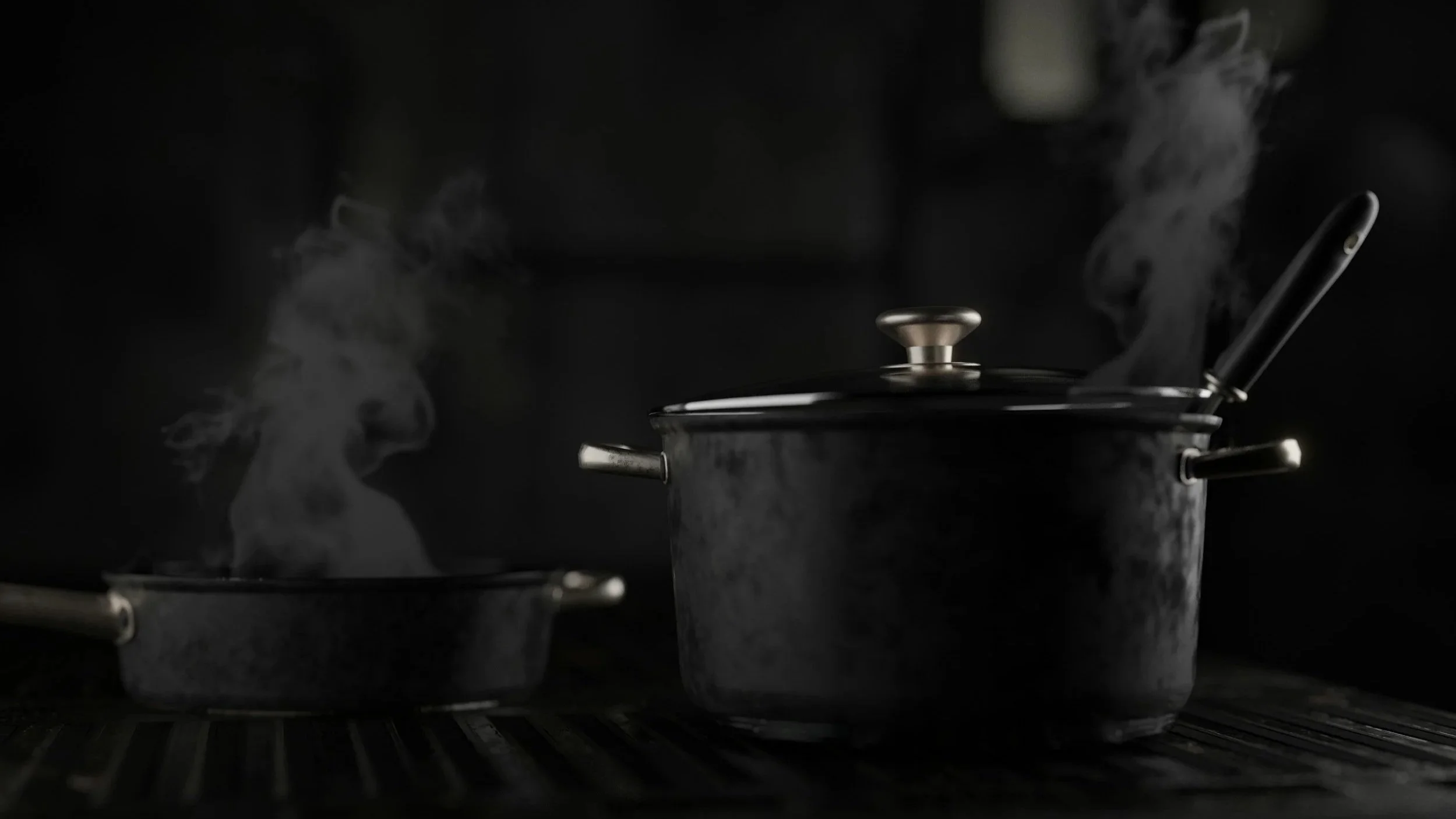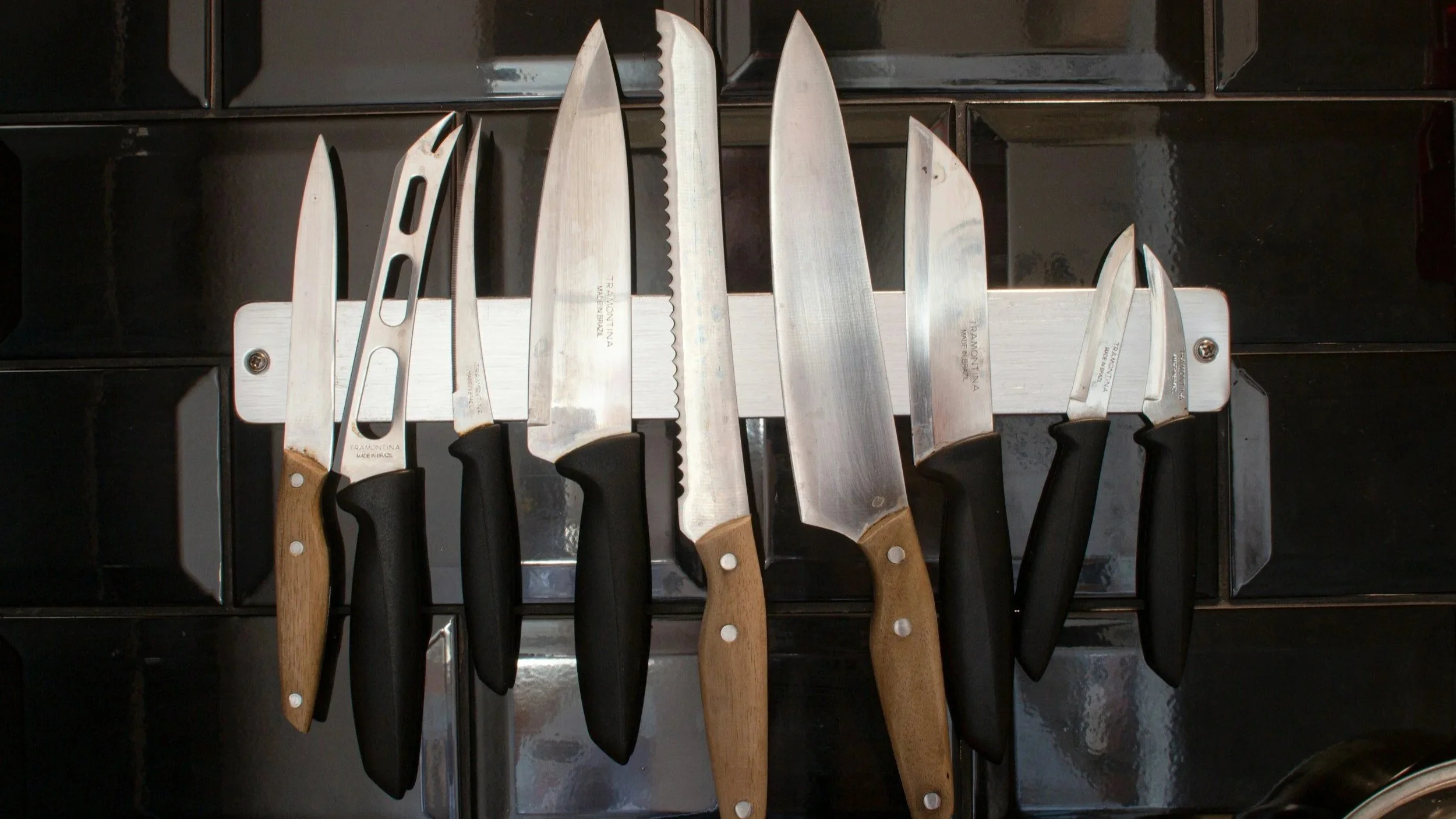🏚️Inside the Haunted House of OCD: The Kitchen🔪🦠
The kitchen is often considered the heart of the home — a place for warmth, meals, and connection. (And dishes, but that’s a whole other type of scary story.) But for someone with OCD, it can feel like a danger zone filled with sharp edges, invisible threats, and unbearable responsibility.
Every surface can feel like a risk. Counters, cutting boards, and utensils all become potential sources of contamination or harm. The mind starts scanning for danger in every direction, attaching meaning to even the smallest action — a dropped knife, an uncooked egg, or the thought that something might not be clean enough.
To someone without OCD, it might look like being overly cautious. But for someone living with OCD, the kitchen can quickly turn into a place of both physical and moral fear — where one wrong move could mean hurting someone else, spreading illness, or being responsible for something unthinkable.
Some of the many what if fears that haunt the kitchen:
What if I accidentally poison someone by not washing my hands well enough?
What if I touch raw meat and then contaminate everything else?
What if I didn’t clean the knife properly and now there’s bacteria on someone’s food?
What if a drop of raw egg touched the counter and I missed it?
What if the sponge I used spread germs everywhere instead of cleaning them?
What if I didn’t cook the chicken long enough and someone gets sick?
What if I forget which cutting board I used for meat versus vegetables and cross-contaminate everything?
What if I touched something dirty and now my entire kitchen is contaminated?
What if there’s mold in the fridge and the spores are in all the food?
What if I accidentally swallowed cleaning products while wiping the counter?
What if the cleaning product got into my drink or the drink of a loved one — maybe even my child or pet?
What if I left a knife out and someone — especially a child or pet — gets hurt because of me?
What if I lose control while holding a knife and stab someone?
What if the thought of stabbing someone means I actually want to do it?
What if I’m capable of something terrible and just don’t know it yet?
What if I can’t trust myself around anything sharp?
What if others touch something and cross-contaminate it, and I don’t know — then I touch something they touched and become contaminated?
What if I can’t handle the feeling of it being gross or contaminated?
What if I touched something contaminated and end up throwing up?
What if someone else gets sick or throws up because of something I did (or didn’t do)?
What if I forget to turn off the stove and burn the house down?
What if I secretly want to kill my family by leaving the stove or oven on?
What if, because I also have ADHD, I forget to turn off the stove one day and I’m actually responsible for the unthinkable?
What if I lose my mind and forget where I’ve touched or what I’ve touched?
Many of these what if thoughts may sound like things we should actually be concerned about. But OCD takes them above and beyond reasonable expectations — demanding certainty, and often perfection.
For someone living with OCD, the amygdala — the part of the brain responsible for detecting and responding to danger — becomes overly reactive, flooding the body with fear and urgency. Each of these thoughts can trigger waves of anxiety that lead to compulsive cleaning, avoiding certain foods or utensils, asking others for reassurance that nothing bad will happen, or refusing to cook altogether.
For some, it’s not just about germs or harm — it’s also about the fear of vomiting, contamination, or being the one who makes someone else sick.
The kitchen, meant to nourish and gather, becomes a place of constant vigilance, where safety never feels guaranteed.
The haunting isn’t really about the germs or the knives. It’s about the fear of being responsible for harm, the discomfort with disgust, and the fears related to contamination. OCD convinces you that you have the power to prevent tragedy, discomfort, and your worst fears from coming true — and punishes you with crushing guilt if you don’t.
What begins as an attempt to keep everyone safe ends up feeding the vampire of uncertainty. It continues to whisper that it’ll never be enough and always demands more. And the more you try to prove you’re safe, the more trapped you become in its web.
Exposure and Response Prevention (ERP) for OCD
But there’s a way out — and it’s not through cleaning more, checking more, or avoiding the kitchen altogether. It’s through Exposure and Response Prevention (ERP), a highly effective treatment for OCD that helps individuals face the very fears their disorder tells them to avoid.
ERP is about learning, through direct experience, that feared outcomes rarely come true — and that even when uncertainty remains, it can be tolerated. In the kitchen, that might mean gradually touching the counter without washing, using the same sponge for multiple dishes, or cooking chicken without checking the temperature a dozen times. The “exposure” is doing the thing that feels risky; the “response prevention” is resisting the compulsion that temporarily relieves the anxiety but keeps the cycle alive.
Over time, the brain learns a new lesson: anxiety fades on its own, uncertainty is survivable, and safety doesn’t come from rituals — it comes from allowing life to be imperfect.
ERP doesn’t make the haunted house disappear. It teaches you how to turn on the lights and stay in the room until the ghosts lose their power.
Stay tuned for next week — when we step into the bedroom, where the lights go out, the mind starts racing, and the monsters under the bed take a very different form. 👀🛏️




